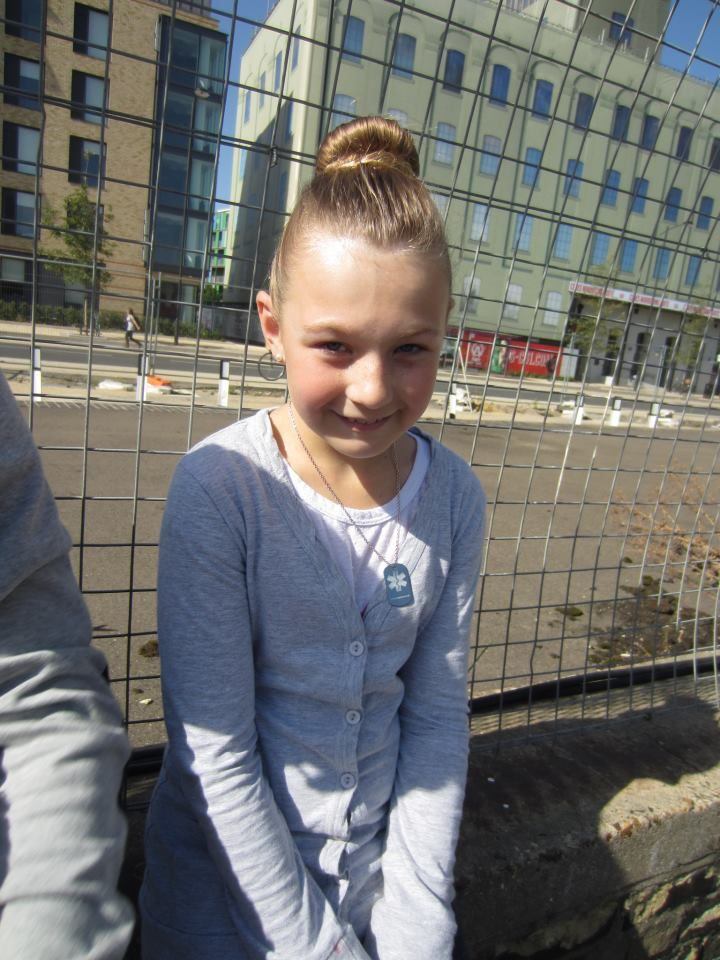Horse Blood Injections Used to Keep a Dying Schoolgirl in Need of Bone Marrow Transplant Alive

A dying British schoolgirl who is seeking a bone-marrow transplant to save her from a rare deadly disease is being kept alive by horse blood.
Eleven-year-old Zoe Gilbert suffers from a life-threatening form of aplastic anaemia which doctors believe can only be cured by a bone marrow transplant. The disease, also called bone marrow failure, affects the blood and is caused by bone marrow and stem cells failing to reproduce enough red and white blood cells and platelets.
Zoe's family has not yet been able to find a bone marrow match for her. Instead, doctors are pumping her weak immune system with horse blood.
Doctors are treating the little girl by injecting her with a serum derived from horse blood that contains antithymocyte globulin (ATG) - an antibody which Zoe's doctors hope will boost her immune system.
While doctors believe injecting horse blood into Zoe will save the schoolgirl's life, the unorthodox treatment comes with a range of side effects, like growth of facial hair, high temperatures, rashes, swollen, painful joints and the risk of contracting a deadly infection, according to the Daily Mail. Doctors believe that Zoe's condition is so bad that the risk is worth taking.
Zoe's family will have to wait for four weeks after the treatment is finished to find out whether it has been successful, and if the treatment fails to works, her only option would be to find a suitable bone marrow donor to volunteer to save her life.
Zoe's mother Elizabeth Gilbert launched an appeal Friday for more donors to sign up to the bone marrow register to "secure Zoe's life".
"We have said can we wait for a marrow donation, but they said we need to do the treatment now. It's very difficult at the moment not knowing what will happen," Elizabeth said, according to Cambridge News. "My biggest fear is it not working and having to go through it again."
Thousands of patients with blood cancer and other blood disorders are given transplants of healthy bone marrow every year. The patient's own diseased marrow is first destroyed to prevent the new marrow from being rejected and to make space for the donor tissue.
Zoe was diagnosed with bone marrow failure after she had ten nose bleeds in just two weeks. Zoe's condition means that her marrow does not reproduce blood cells that prevent bruising, and leaves her with little resistance to infection.
She now has to have blood and platelet transfusions every week. Zoe's doctors at Addenbrooke's hospital and the Anthony Nolan charity have searched worldwide for a matching donor for Zoe. Studies have shown that family members are not necessarily compatible and that it is more likely that a complete stranger will be an exact match.
Children who do not have a sibling who is a good bone marrow match can be treatment with an immunosuppressive therapy using antibodies from horse and rabbit blood. The animal therapy cuts the number of white blood cells circulating in the bloodstream using drugs like antilymphocyte globulin (ATG) and ciclosporin, which encourage the bone marrow to restart blood cell production.
Dr. Michael Gattens, consultant paediatric haematologist at Addenbrooke Hospital, where Zoe is treated, said that Zoe would be kept in isolation during her three weeks in hospital. She will be closely monitored for infections because in many cases they can be fatal.
"Ideally bone marrow is the best option but without a match we use ATG," Gattens said, according to Cambridge News. "It is a pretty intensive treatment and can result in serum sickness but we can only carry out marrow transplants if we have a perfect match - it is essential for this condition, otherwise it won't work. For most people, a transplant is a long-term solution. Occasionally, many years down the line, people relapse."
Aplastic anaemia can affect anyone at any age, but the disease seems to occur most often in children and people over the age of 60.



























